Interview with Michaela Miles
M: Today I’ve taken over author Kerry J Donovan’s website to throw questions at him from readers, and a few of my own.
Thanks for taking the time, Kerry.
K: No problems, Michaela. I love talking about my favourite subject. 🙂
M: So let’s start with the obvious. What is your latest book, The Transition of Johnny Swift about?
K: Oh hell the dreaded synopsis – how to condense 96k words into a single sentence?
I find this so difficult to answer. In a single sentence, Johnny Swift is the story of one man’s fight to save his family from a threat nobody else can see.
To expand a little, Frank Brazier (the book’s lead character and narrator) is a racing driver and after a night celebrating a big win, he takes the train back to London with his sister, Paula.
Three days later, he wakes in hospital with injuries so severe he’s blind in one eye and can hardly move. Paula is on life support and the doctors say she’s brain dead, but Frank knows better. He’s been hearing voices calling to him in the darkness, and one of the voices is Paula.
The rest of the book follows Frank’s recovery from his physical injuries and his battle to have those around him help him save his sister, and the rest of his family. The doctors dismiss him, and his father and girlfriend doubt what he sees and hears is real.
M: I have to say that sounds intriguing and leave it at that, because I have read the book, and don’t want to give away any spoilers! Suffice it to say that I thoroughly enjoyed it.
Is The Transition of Johnny Swift (JS) part of a series?
K: Thanks Michaela, that means so much to me.
A series? Now there’s an interesting question. It all depends on how well the book is received. I’ve certainly left enough open for a sequel if not a series. If the book sells, then rest assured, there’ll be a sequel. I love the characters I’ve created in the book and really want to find out what happens next (and I have a suspicion I already know some of it).
M: So can you tell me anything about the world you’ve created for JS… without giving away any spoilers?
K: Aha – I’ve not created a world. It’s always existed, at least my version of has. I’ve just written it down. The novel takes place in and around modern day Northamptonshire. And that’s as far as I want to take it in this interview. Mwahaha.
M: Is there any kind of hidden meaning or moral to the story you’d like readers to be clued in on?
K: Hidden meaning? Nah – don’t believe in them. I like to make things clear without battering the reader over the head with them. If the book has a book’s clear message it is: trust your instincts. Fight for what you believe in and for those you love. I hope that doesn’t sound too pompous or confusing.
M: From someone who’s read the book, it’s a great message What was the hardest part about writing JS?
K: The pat answer is ‘All of it’. But seriously, I’m what’s called a pantser (I write by the seat of my pants – a particularly numb and stupid part of the anatomy). Half way through the story, I wrote myself into a ruddy great big hole in the plot and couldn’t find a way to dig myself out. I left the book for a week and when I returned, Frank Brazier had taken over and written the next part for me. I carried on to the end and am really happy with the result. Thanks Frankie. And if you believe that last part, would you like to buy my multi-million Euro French Chateau?
M: LOL sure! France is part of my retirement plan anyway 🙂
If you were to describe The Transition of Johnny Swift in terms of “James Bond meets Rambo”, how would you do so?
K: Bond and Rambo? Blimey another difficult one. How about this? Jensen Button meets Albert Einstein around the dinner table with Kate Beckinsale. The waiter is Claude Rains as the Invisible Man. Will that do?
M: Sounds like an interesting dinner party!
Now, JS is a departure from your usual genre of crime thriller, (a rather good one, if I may say), so I want to ask what prompted you to write crime as your first genre?
K: I’ll answer that in a woolly way, but there’s a point so bear with me.
When I watch a magic show, I never try to work out how the trick was done, but how I WOULD do the same trick. It’s the same with crime thrillers and whodunits. I love solving the puzzles and want to bring that into my writing. I also want to surprise my readers with twists and turns. That’s the really fun part. And I think I bring some of the same techniques into Johnny Swift.
M: Do you have any real-life experience that helps with your writing?
K: That’s another great question and another difficult one to answer. I’m a former cabinet maker and have a PhD in Respiratory Physiology. I reckon this background helps my writing in a number of ways. I have an eye for detail which, I think, helps me write descriptions, and know how to do the research. The trick is to write from a scientific or forensic perspective without being dry and boring or losing the reader. That and the fact I’m a master criminal and only write about the crimes I’ve actually committed. Mwahahaha.
M: I’m sure I’ll have to add a disclaimer to the interview for that comment! Anyway, I see from your bio you didn’t earn your PhD until you were in your forties? You didn’t go to university straight after school?
K: Ouch. Bit of a sore subject actually. I could lie and say my family were so poor they couldn’t afford to send me to university (which is true BTW), but truth be told, I was a brat of the first order during my teens. Didn’t do anything untoward, but I was expelled from grammar school in the lower sixth. I was seventeen.
M: Expelled, hey? Everyone loves a bad boy. Care to tell us more?
K: It’s not like I blew up the school or was caught stealing the headmaster’s car.
It was an accumulation of things. The head and I didn’t get on, and he wanted to make a point. As it happens, the arsehole (he’s dead now so can’t sue) expelled me the week before I was due to leave anyway. In my first brush with authority, I came off second best. Story of my life.
M: I can certainly understand that! So what did you do next?
K: This was a bit of an adventure. I spent six months drawing £6.05 per week on unemployment—£3 of which I gave my mother as housekeeping. After that, I found an office job and moved to London from deepest rural Wales at the tender age of seventeen, in 1975. When I boarded the train from Carmarthen to Paddington, I had a fiver in my wallet, some loose change, and £36 in a Post Office Savings account. I carried one suitcase, a cassette player, and eight bootlegged music cassettes. And I had no place to stay when I reached London.
M: Sounds horrible but fascinating. What happened when you arrived?
K: That’s the exciting bit. I kipped for a month on the floor of my brother’s shared student flat in Golders Green. After that, I moved into the company hostel and met my future wife, Jan. We’ve been together ever since, and married 37 years. I now boast about my three children and three grandchildren.
M: Aww what a love story. Sounds like a great setting for another book…
K: Yep and I’ve already started that one – a horror story naturally.
M: That *is* horrible, Kerry – I think I better move on before Jan joins the interrogation! Anyway, so not on to university then?
K: No, uni came later–in 1993. I had to close my cabinet-making workshop during the recession of the early 1990s. I took on a one-year Sports Therapy course in 1992, and a couple of coaching qualifications. I discovered a love of education. During 1993-1996 I studied to earn my BSc in Combined Studies (Human Biology) and then moved onto a PhD in Birmingham between 1996-99.
M: Birmingham? Isn’t that where you set your DCI Jones Casebook series?
K: Exactly. I know the place quite well and it’s a lot larger than my old home town, Northampton. Birmingham is known as England’s ‘second city’ and there’s plenty of scope for crime stories.
M: So the realism in the descriptions and people that readers and reviewers love come from your own experiences?
K: Pretty much so. My mate, Detective Chief Inspector David Jones gives me an overview of the cases from the police perspective, and covers the technical stuff. I fill in the blanks.
M: That would certainly cut down research time! And are there any other specific life experiences that have become incorporated in your books?
K: Yes – David Jones is a wonderful guy. And to answer your question, I now live in France and part of my most recent Casebook novel (Ellis Flynn) is set in Brittany. So I guess that answer the question well enough, eh?
M: Good enough for me. So everything you write about has a basis in fact rather than straight from the depths of your imagination?
K: I’d say a bit of both. For a start, I’ve never been to a real-life crime scene, nor have I been a murderer (sic), so a load comes from the depths of my troubled mind. On the other hand, the characters and settings are generally based in reality–or my version of it.
M: Fair enough 🙂 You said you live in France now. Why did you choose to retire there? Seems like an author’s dream!
K: Hang on a minute! It is a author’s dream, but I’m not retired. I’m FAR too young and poor. I have to earn a living you know.
M: I know what you mean, but I am still completely jealous right now! So let’s move on to a few more standard interview questions: Why did you start writing?
K: Tee hee – I’ve been writing for so long, I can’t answer that question without sounding clichéd. I’ve always written, but now the kids have grown I have a little more spare time. When my wife was in hospital in 2007, I wrote a diary/blog to update the family and found the process a great comfort. I’ve not stopped since and now write more-or-less full time.
M: Do you have any rituals you follow to write?
K: Oh yes. Complicated and weird… I sit down at my PC and type the first thing that comes into my head. The words usually start flowing easily enough. Whether they make sense or not, that’s a question for my readers.
M: So no special coffee cup or fluffy toys?
K: Nah – I’m a simple soul. I have a bucket of tea and a bikkie and that’s all I need. That, and my six-foot invisible rabbit, Harvey.
M: I bet he’s the brains behind the operation! On a serious note, we all know writing is a very hard and lonely profession. Where do you find support to keep going when things get tough?
K: Writing is my passion and my release, I don’t really find it difficult, but when I’m stuck for a plot I normally take my bike out the garage and go for a cycle. I find the exercise is a little like meditation does wonders for my waistline too. I have the support of writers and friends too, of course.
M: So did you use a critique partner or group to help with revisions and editing?
K: Certainly did. I’m a member of the online writer’s support group, Scribophile, whose members have helped me develop as a writer over the past couple of years. And I have two or three wonderful editors who proofread and offer superb advice which I sometimes even take notice of. Shall I name them? Matt Demers and Michaela Miles – ever heard of her?
And of course my darling wife, the typo finding machine, and my harshest critic (in every sense of the word).
M: That’s so sweet to say, Kerry. I love being one of your first sounding boards and beta readers. Is there anyone who stands out as a mentor in your writing career?
K: Ah now, some might say their English teacher, but mine was an evil old hag we nicknamed ‘Bulldog’, but that was doing bulldogs a disservice. I don’t have space to mention everyone, there are dozens, especially my writer friends on Scribophile, but the two standouts are you and Matt Demers. Without your guys, I’d be nowhere.
And the fantastic people who’ve supported me by placing pre-orders for The Transition of Johnny Swift – I really can’t thank you enough. Wonderful.
M: You’re very welcome. But before I blush so red, my husband puts me in the veggie crisper, what piece of advice would you give a new author?
K: That’s easy and my answer is hardly original. Read the work of lots of different people, find your own voice, and write. You can’t be a writer without writing. Simple as that 🙂
M: Very true! What is your favourite quote?
K: Tee hee – I’ve used this one before, but it’s Spike Milligan’s epitaph – “I told you I was ill!” Love that.
M: And finally: how would you describe yourself in three words?
K: Another easy one. (That’s three words, isn’t it?) But seriously: Tall, Grey, Adequate.
M: Fabulous 🙂 Well I guess I can release you without charge – you answered all my questions! Just have to hope it was truthfully …
K: In the words of my sainted mother – Kerry, never tell a lie – and if you do, make it a good ‘un. Thanks for sparing the time, Michaela – I love talking about myself.
M: I can tell! And now here are some questions from guests at Kerry’s book launch event:
Judith Hurrell: Hi Kerry J Donovan can you tell everyone what inspired you to write this book?
Kerry Donovan: Inspiration is a strange concept, Jude. This one was pure fluke. I came up with the title and wanted to know what story would com from it. Weird. Writing is normally the other way around – the title coming from the book. Serendipity? I hope so. I’m pretty pleased with the way it turned out though.
Judith Hurrell: It’s a great title. Very intriguing. Do you identify with Johnny or any other of your characters in any way?
Kerry Donovan: I don’t think so, we’re talking about a 24 y.o. racing driver, so I’m much closer to his father, Pete Brazier, the handsome and rugged 50-something engineer (sic), and the steadying influence in Frank Brazier’s life. Careful here – I don’t want to give away too many spoilers.
Judith Hurrell: Ha! Wondered how you were gonna answer that one. Wasn’t sure if you were a racing driver in your youth… Are any of your books autobiographical in any way? They say every author had one…
Kerry Donovan: Autobiographical, Judith Hurrell? Yep – I’ve been in hospital a couple of times and I drive a car, and in my time, I’ve seen loads of shadows – but only when the sun shines! Will that do? No? I do have a fictionalised autobiography part written, but that’s maybe for the next round of BNBS launches. I’ll need a lie down after this one – but here’s my darling wife now with another cup of tea. What a patient woman she’s been.
Of course, by ‘fictionalised’ I mean it’s all a pack of lies!
Judith Hurrell: Sounds like it could be a winner! Any tips for wannabe first time authors out there? So many writers start a book but don’t he as far as finishing it…
Kerry Donovan: That’s a lovely thing to say, Judith Hurrell, thank you. My tip(s) would be, read loads to see how it’s done, find a topic you want to talk about and then just write it.
Don’t be disappointed if the early drafts aren’t perfect, nobody gets it right first time. Show me the writer who’s happy with the first draft and I’ll show you one of three things – a delude fool, a bad writer, or a genius.
The Transition of Johnny Swift took five drafts!
And that’s the end!
Thanks to Kerry for letting me take over, and for answering all my questions! And don’t forget:

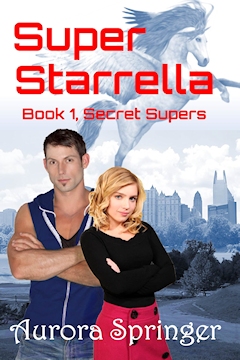
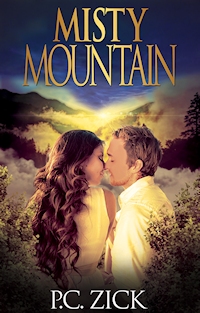
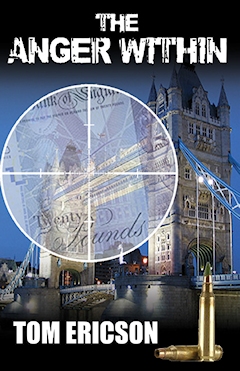

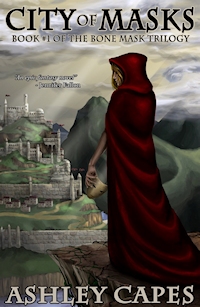
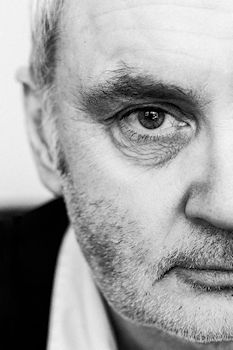




Leave A Comment